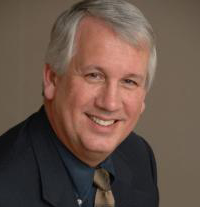Archived Content
This page is archived and provided for historical reference. The content is no longer being updated, and some of the information may have changed over time and could be outdated or inaccurate.

On January 19-20, the Office of Behavioral and Social Sciences Research (OBSSR) had the pleasure of convening an expert panel to provide input into our strategic planning process. OBSSR staff and I finished the day energized and encouraged by the passion and urgency these leading experts shared.
After welcoming the panelists, Drs. James Anderson, Director of the NIH Division of Program Coordination, Planning, and Strategic Initiatives (DPCPSI), and Lawrence Tabak, NIH Principal Deputy Director, provided important perspectives on the role of the OBSSR within DPCPSI, and placed OBSSR strategic planning efforts within the larger NIH Strategic Plan.
The wide-ranging discussion delved into the scope of the OBSSR mission, the key challenges and opportunities for behavioral and social sciences, potential solutions to these challenges, training needs for the next generation of behavioral and social science researchers, the efforts needed to foster adoption of behavioral and social science findings, and priorities that the OBSSR is uniquely poised to address.
A full report from this meeting will be developed over the upcoming weeks, but I wanted to share now a few key messages that I heard from the excellent discussions of the expert panel.
- Social and behavioral sciences need to be integrated into the larger NIH supported biomedical research enterprise.
- Advances in social and behavioral sciences require progress in measurement of social and behavioral phenomena.
- Greater methodological flexibility, diversity, rapidity and rigor are needed to address the pressing social and behavioral research questions.
- Influences on health that are above the level of the individual, i.e., population health, require greater attention and focus.
- To be more impactful, the social and behavioral sciences need to shift focus from studying problems to solving them.
- Better uptake and adoption of social and behavioral research findings is clearly needed.
- The next generation of social and behavioral scientists need to have the skills to advance new methods and measures and the breadth to be integral members of transdisciplinary research teams.
As I listened to the expert panel’s input, I thought about what the health of our nation would look like if we were to solve all of the behavioral and social/environmental influences that negatively impact health. To address these, we must recognize that the health delivery system plays a very small role in our “health delivery system”, which is comprised of the full range of practices that influence the environment around us.
The environment is the key primary driver of health. It has determined, via evolutionary forces, our genetic makeup and shapes how these genes are expressed. It impinges on and stresses our biology. It molds the organ designed to represent it, react to it, and regulate it—the brain. It shapes our knowledge, attitudes, and behaviors. It reciprocally shapes our interactions with family, healthcare providers, and others since we are part of their environment, and they part of ours.
I want to thank all of the expert panelists who took the time from their busy schedules to provide input to the OBSSR strategic planning process: B. J. Casey, Weill Cornell Medical College; Fay Lomax Cook, National Science Foundation; Ana Diez Roux, Drexel University; Elissa Epel, University of California, San Francisco; Sarah Gehlert, Washington University; Shiriki Kumanyika, University of Pennsylvania; David Mohr, Northwestern University; Tracy Orleans, Robert Wood Johnson Foundation; Ken Resnicow, University of Michigan; and James Sallis, University of California, San Diego.
The panel was facilitated by Alan Leshner, CEO Emeritus of the American Association for the Advancement of Science. The input of the panel, along with others who have contributed throughout the process, provides important perspectives that will shape the OBSSR Strategic Plan, which we anticipate will be released this spring.
 OBSSR Director
OBSSR Director
Dr. Riley was appointed director of the NIH OBSSR, and associate director of NIH for Behavioral and Social Sciences Research in August 2015. Before his current NIH appointment, he served as a health scientist administrator and deputy director in the Division of AIDS and Health Behavior Research at the National Institute of Mental Health, a program director at the National Heart, Lung, and Blood Institute, and chief of the Science of Research and Technology Branch in the Division of Cancer Control and Population Sciences at the National Cancer Institute. He also serves as a professorial lecturer in the School of Public Health at The George Washington University.
Photo credit: JJAVA/ Fotolia








